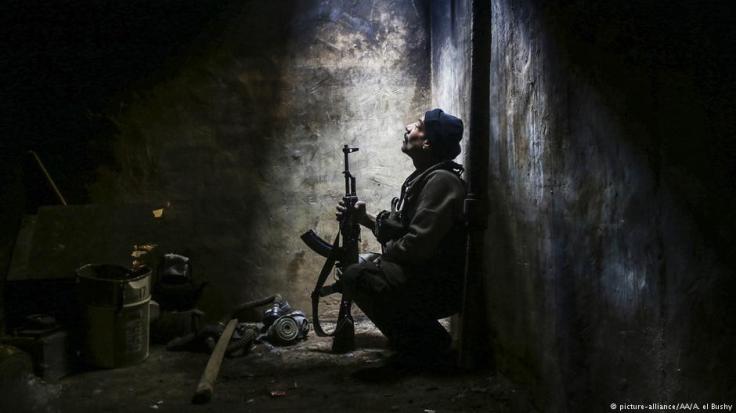Turkey warns ceasefire violations could put Syria peace talks at risk

Ankara has said Syrian military airstrikes on rebel-held areas in Wadi Barada could jeopardize planned peace talks in Kazakhstan. Damascus has accused the rebels of deliberately cutting off the capital's water supply.
Turkey has accused the Syrian regime of violating a truce deal it brokered with Russia last week, warning that it could jeopardize a new round of peace talks scheduled for later this month.
While a nationwide ceasefire, in force since Friday, has brought quiet to much of Syria, fighting continued on Wednesday near the Syrian capital, Damascus. Syrian President Bashar al-Assad's forces, backed by Lebanese Shiite movement Hezbollah, mounted at least 15 air and shelling strikes on rebel-held areas in Wadi Barada, northwest of Damascus. It remains unclear whether there were any casualties.
Turkish Foreign Minister Mevlut Cavusoglu urged the Assad regime and its backers to end their "violations" of what has proven to be a very "fragile" truce agreement.
Cavusoglu warned that any further violations would risk jeopardizing the upcoming peace talks in the Kazakh capital, Astana, scheduled to begin on January 23.
"If we do not stop the increasing violations, the Astana process could fail," Cavusoglu told the state-run Anadolu news agency on Wednesday. "After the ceasefire, we see violations."
"When we look at who commits these violations, it is Hezbollah, in particular Shiite groups and the regime," he added.
Cavusoglu urged Russia and Iran, Assad's key allies in the Syrian civil war who are also preparing for the Astana talks, to pressure the Syrian president to stop fighting.
The "fragile" ceasefire deal between the Syrian government and main opposition groups went into effect on Friday.
The deal is a potential major breakthrough after nearly six years of civil war.
Wadi Barada under siege
Wadi Barada, a rebel-held area just outside Damascus which holds the capital's water supplies, has been under government siege since 2015. The Assad regime's military efforts were upped in recent days after the government accused rebels of deliberately targeting the water supply, leaving some 4 million people without water for the last four days.
Rebels, meanwhile, have denied responsibility, asserting that infrastructure for supplying water was damaged in government strikes.
dw.com
